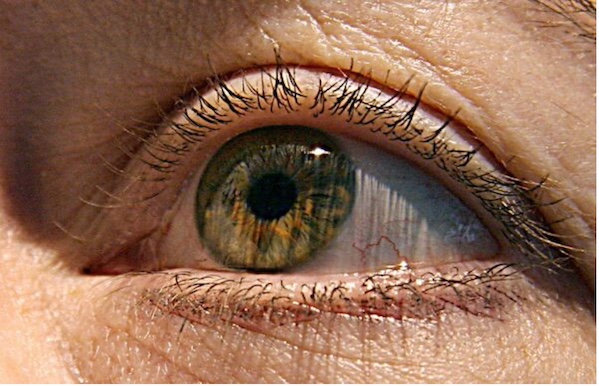Merck Sees Pipeline Diversification Opportunity in $1.3B EyeBio Acquisition
June 1, 2024
Source: drugdu
 272
272
Merck’s EyeBio acquisition brings a lead program ready for pivotal testing in diabetic macular edema. The therapy could pose competition to Eylea, the blockbuster Regeneron Pharmaceuticals eye drug.
By Frank Vinluan Merck is on the hunt for drugs with blockbuster potential to make up for declining revenue when its top product, the cancer immunotherapy Keytruda, loses patent protection in the next few years. The pharmaceutical giant is getting a contender through the acquisition of a clinical-stage startup whose lead program is on track to begin pivotal testing in diabetic macular edema.
Merck is on the hunt for drugs with blockbuster potential to make up for declining revenue when its top product, the cancer immunotherapy Keytruda, loses patent protection in the next few years. The pharmaceutical giant is getting a contender through the acquisition of a clinical-stage startup whose lead program is on track to begin pivotal testing in diabetic macular edema.
According to deal terms announced Wednesday, Merck is acquiring Eyebiotech Limited, or EyeBio, for $1.3 billion in cash up front. Shareholders of the New York-based company could receive up to $1.7 billion more in milestone payments.
EyeBio develops drug for retinal conditions in which inflammation leads to the breakdown of the inner blood-retinal barrier. This breakdown leads to vascular leakage, which is a risk factor for eye disorders such as diabetic macular edema and neovascular age-related macular degeneration. EyeBio’s drugs are antibodies engineered to bind to and activate their targets.
The lead EyeBio program, named Restoret, addresses the Wingless-related integration site (Wnt) pathway in the eye. Wnt genes code for proteins key to normal development and maintenance of the blood-retinal barrier, and problems in Wnt signaling can lead to retinal vascular leakage. In diabetic macular edema, blood vessels in the retina leak fluid into the macula, leading to swelling and blurry vision. The condition is a complication of diabetic retinopathy. Restoret is a tri-specific agonist antibody intended to activate the Wnt pathway to restore and maintain the blood-retinal barrier.
The acquisition agreement comes three months after early clinical data for data for Restoret were presented during the Macula Society Meeting. In the open-label Phase 1b/2a study enrolling patients with diabetic macular edema, the EyeBio therapy was well tolerated with no drug-related adverse events or eye inflammation reported. In the 26 patients who received the experimental treatment as a monotherapy, results showed improvement in best-corrected visual acuity and a reduction in retinal thickness. Similar outcomes were observed in study participants who received Restoret in combination with Eylea, the blockbuster Regeneron Pharmaceuticals drug whose approved indications include diabetic macular edema. Eylea works by blocking proteins that promote the growth of blood vessels contributing to vascular permeability. The drug accounted for more than $9.3 billion in revenue last year across all of its approved eye indications, according to Regeneron’s annual report.
EyeBio formed in 2021, co-founded by David Guyer, the former executive chairman and CEO of Iveric Bio, and Anthony Adamis, a veteran of Roche subsidiary Genentech. Iveric developed Izervay, a treatment for the eye disorder geographic atrophy. Astellas Pharma acquired Iveric last summer, just prior to Izervay’s FDA approval.
EyeBio emerged in 2022 supported by a $65 million Series A financing led by SV Health Investors. Samsara BioCapital, Jeitao Capital, and MRL Ventures also invested in the young company. Late last year, EyeBio expanded the financing round to $130 million with new investors Bain Capital Life Sciences, Omega Funds, and Vertex Ventures.
The EyeBio acquisition has the approval of the company’s board of directors. Merck expects to complete the transaction in the third quarter of this year. By then, the pivotal Phase 2b/3 test could already be underway testing Restoret in diabetic macular edema. Merck said this study is expected to begin in the second half of 2024.
“We continue to execute on our science-led business development strategy to expand and diversify our pipeline,” Dean Li, president, Merck Research Laboratories, said in a prepared statement. “The EyeBio team, under the leadership of Dr. David Guyer and Dr. Tony Adamis, has a strong track record of developing groundbreaking ophthalmology therapies. By combining our strengths, we aim to advance with rigor and speed the development of their promising pipeline of candidates targeting retinal diseases.”
Photo: Karen Bleier/AFP, via Getty Images
Read more on
- The first subject has been dosed in the Phase I clinical trial of Yuandong Bio’s EP-0210 monoclonal antibody injection. February 10, 2026
- Clinical trial of recombinant herpes zoster ZFA01 adjuvant vaccine (CHO cells) approved February 10, 2026
- Heyu Pharmaceuticals’ FGFR4 inhibitor ipagoglottinib has received Fast Track designation from the FDA for the treatment of advanced HCC patients with FGF19 overexpression who have been treated with ICIs and mTKIs. February 10, 2026
- Sanofi’s “Rilzabrutinib” has been recognized as a Breakthrough Therapy in the United States and an Orphan Drug in Japan, and has applied for marketing approval in China. February 10, 2026
- Domestically developed blockbuster ADC approved for new indication February 10, 2026
your submission has already been received.
OK
Subscribe
Please enter a valid Email address!
Submit
The most relevant industry news & insight will be sent to you every two weeks.



